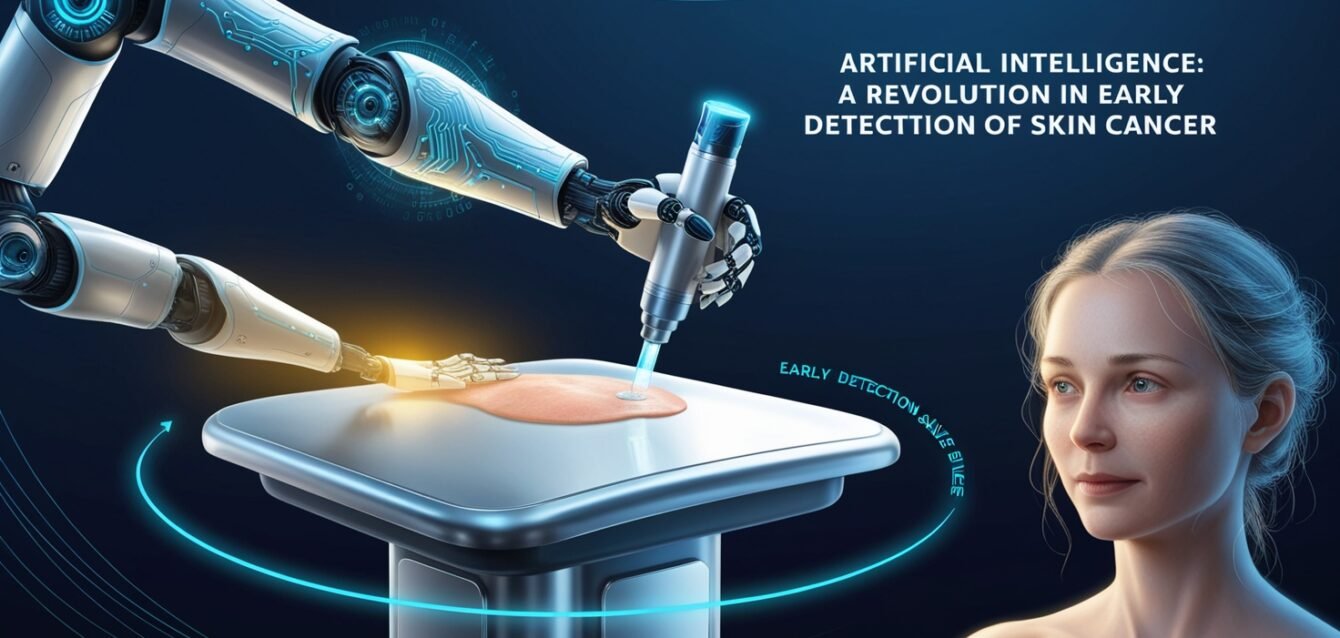Skin cancer is the most prevalent type of cancer globally, with rates continuing to rise each year. It primarily occurs when skin cells undergo mutations, caused by factors such as excessive sun exposure, tanning beds, and genetic predisposition. The three major types of skin cancer are basal cell carcinoma, squamous cell carcinoma, and melanoma. Basal cell carcinoma accounts for the majority of skin cancer cases, while melanoma, though less common, is significantly more aggressive and capable of spreading to other body parts if not detected early.
The importance of recognizing skin cancer cannot be overstated, particularly in terms of early detection. Data indicates that about one in five Americans will develop skin cancer in their lifetime, highlighting the urgent need for awareness. Early diagnosis plays a critical role in improving treatment outcomes and survival rates. For instance, the five-year survival rate for early-stage melanoma is around 99%, but this figure drops significantly if the cancer has advanced to a later stage.
In addition to understanding the various types of skin cancer, individuals must also be aware of the risk factors. These include fair skin, a history of sunburns, and a family history of skin cancers. Individuals with these risk factors should conduct regular skin self-examinations, watching for any changes in moles or new growths, and seek professional advice as necessary. The integration of knowledge about skin cancer and its risks facilitates informed decisions about preventive healthcare measures.
Ultimately, raising awareness about skin cancer’s prevalence and the significance of early detection can empower individuals to take proactive steps in their healthcare. By fostering a culture of vigilance regarding skin changes, society can significantly enhance the chances of successful outcomes in skin cancer treatment.
(Purchase today by clicking on the image)
The Role of Artificial Intelligence in Medical Diagnostics
Artificial intelligence (AI) is fundamentally transforming the landscape of medical diagnostics, particularly within the dermatology field. By harnessing advanced technologies such as machine learning and deep learning, AI systems can analyze extensive datasets to identify patterns that are crucial for the early detection of skin cancer. These techniques enable clinicians to rapidly process vast amounts of information, including medical images and patient history, which enhances the overall diagnostic process.
Machine learning, a subset of AI, utilizes algorithms that learn from data, allowing them to improve their performance over time. In dermatology, machine learning models can be trained on thousands of images of skin lesions, teaching the system to distinguish between benign and malignant growths. Similarly, deep learning, which involves neural networks with multiple layers, can extract features from images at a level of detail that surpasses human capability. This capability not only supports the identification of skin cancer but also aids in monitoring and analyzing changes in existing lesions.
One of the primary advantages of incorporating AI into medical diagnostics is the significant increase in speed. Traditional methods for diagnosing skin cancer often involve lengthy examinations and biopsies, which can delay treatment. In contrast, AI-driven solutions can provide instant analysis, reducing wait times, and allowing for quicker decision-making. Furthermore, AI methodologies boast enhanced accuracy by minimizing human error and providing consistent results across large populations. This consistency ensures that patients receive reliable diagnoses and tailored treatment plans based on the latest data.
Overall, the integration of artificial intelligence into medical diagnostics revolutionizes how skin cancer is detected and managed. This innovative approach not only streamlines the diagnostic process but also significantly improves outcomes for patients, reflecting a promising advancement in the fight against skin cancer.
Case Studies and Success Stories
Recent advancements in artificial intelligence (AI) have fundamentally transformed the landscape of skin cancer detection. Several case studies highlight how AI systems have been integrated into clinical practices, showcasing their efficacy in identifying skin cancer at an early stage. One notable example is the collaboration between dermatology clinics and tech companies to develop a mobile application that employs deep learning algorithms. This application analyzes images of skin lesions submitted by users, providing preliminary assessments and suggesting the need for professional evaluation. In a clinical trial involving over 10,000 patients, the app achieved an impressive accuracy rate of 95% in identifying malignant lesions, significantly higher than the manual assessments performed by healthcare professionals.
Another compelling case study is the use of AI-powered diagnostic tools in teledermatology. A research initiative conducted by a reputable medical institution evaluated the performance of an AI platform that processes real-time patient data and images captured remotely. Results indicated that the AI tool was able to triage skin conditions efficiently, reducing patient wait times and increasing the overall throughput of dermatology departments. Feedback from healthcare professionals highlighted the platform’s capacity to enhance decision-making, allowing clinicians to focus on complex cases while routine assessments were managed by the AI.
Additionally, a hospital in California implemented an integrated AI-based system within its dermatology department, which assisted physicians in diagnosing skin cancer during routine examinations. With continuous learning capabilities, the AI improved its diagnostic accuracy over time, resulting in a 40% reduction in misdiagnosis rates. Physicians reported that the AI support not only expedited their workflow but also instilled greater confidence in their diagnostic decisions.
These case studies underscore the burgeoning role of AI in early skin cancer detection. As technology continues to evolve, the integration of AI into clinical environments holds the promise of further improving patient outcomes and enhancing the efficiency of healthcare delivery.
The Future of AI in Dermatology: Challenges and Opportunities
The integration of artificial intelligence (AI) into dermatology offers significant potential for advancing skin cancer detection and treatment. As the technology continues to evolve, several challenges and opportunities arise that necessitate careful consideration. One of the primary hurdles is the regulatory environment governing AI applications in healthcare. Current regulations are often not tailored to accommodate the rapid pace of AI developments. Therefore, ensuring that AI tools meet safety and efficacy standards while also expediting the approval process is essential for widespread adoption.
Ethical considerations further complicate the deployment of AI in dermatology. The use of patient data in training AI algorithms raises concerns over data privacy and security. It is imperative for healthcare providers and tech companies to establish robust frameworks that address these issues while promoting transparency. A collaborative approach can lead to ethical AI solutions that prioritize patient welfare and trust, ultimately fostering greater acceptance among both providers and patients.
Continuing research is also critical in overcoming existing challenges. As AI technology advances, ongoing studies are needed to improve algorithm accuracy and adaptability in diverse populations. This research can help bridge the gap between AI capabilities and clinical application, ensuring that dermatology practices can leverage AI without compromising patient care quality.
Despite these challenges, the opportunities for collaboration between technology firms and healthcare providers are abundant. By working together, they can innovate tools that enhance diagnostics, streamline clinical workflows, and ultimately improve patient outcomes. This synergy can facilitate the development of more accurate AI models and promote user-friendly interfaces that integrate seamlessly into existing dermatological practices.
In conclusion, the future of AI in dermatology holds immense promise, marked by both exciting opportunities and significant challenges. With ongoing collaboration and commitment to ethical practices, the potential for revolutionizing skin cancer detection is within reach.
(Purchase today by clicking on the image)






